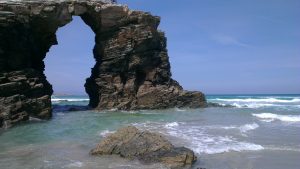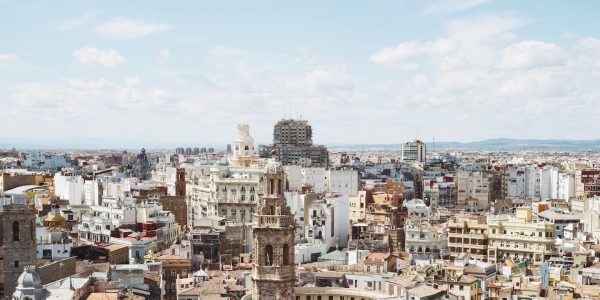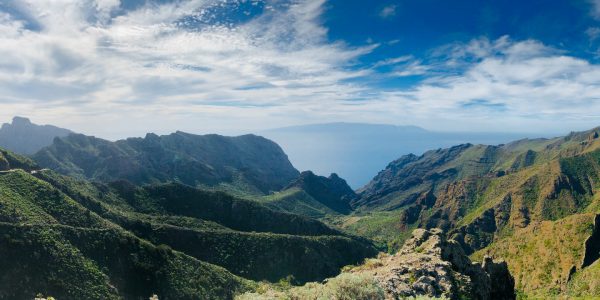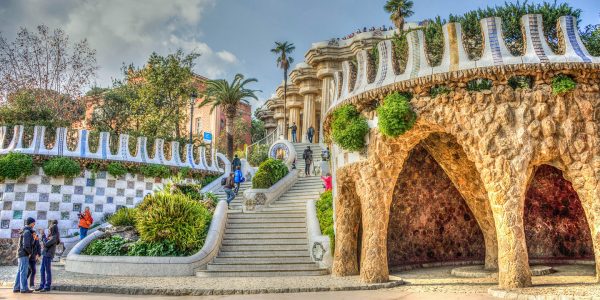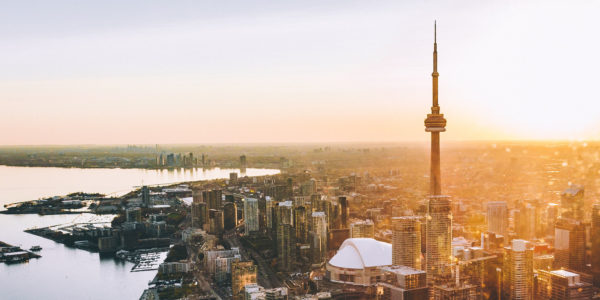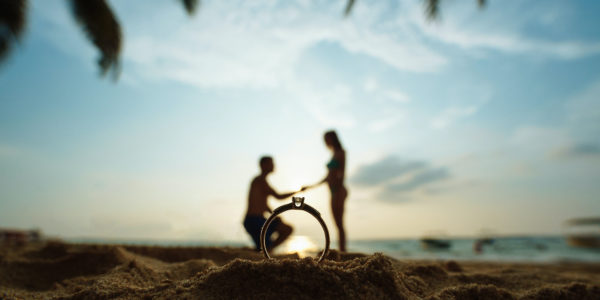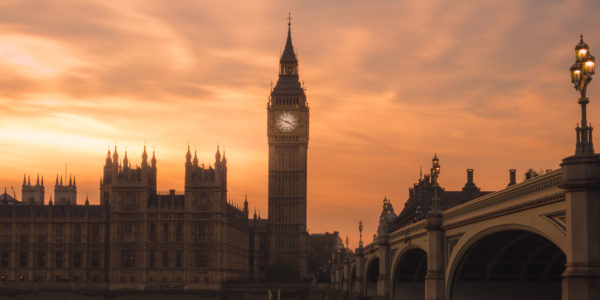Galicia is a region on the Northwest coast of Spain. Its major city and capital is Santiago de Compostela. Throughout history, this part of the country has held an important position as a hub of commerce and culture. The Romans came through here, as did the French, Dutch, and English in search of trade. Its beautiful historical sites pay tribute to the era when Spain was the richest nation in the world, made wealthy by the discovery of gold in its colonies in South America.
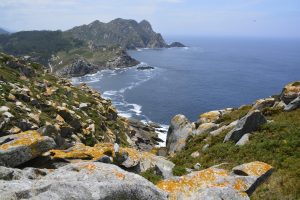
The landscape in Galicia is incredibly varied. Think vast forests, rocky terrain that’s great for hiking, and picture-perfect beaches on the Atlantic ocean. The cities are just as multi-faceted, boasting Medieval palaces a stone’s throw away from the imaginative modern architecture Spain is known for. It’s a playground for History fans, art connoisseurs, and outdoor adventurers alike, and heaven for globetrotting foodies.
It wasn’t easy, but we’ve narrowed the best things to do in Galicia to the top 10.
Galicia Fast Facts:
Area: 29,574 km²
Population: 2.7 million
Language: Spanish, Galician
Major cities: Santiago de Compostela, Vigo, Cambados, Lugo, and Ourense
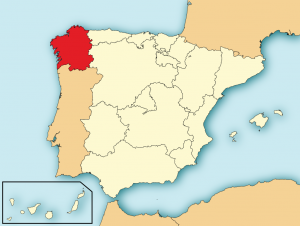
The Top Ten Things To Do In Galicia, Spain
10. Santiago de Compostela
Of all the cities in Galicia, Santiago de Compostela is the largest and the one of most cultural and historical significance.
Originally used by the Romans as a burial ground in the 4th century, this Spanish town still retains a multicultural flair, home to expats from Brazil, Portugal, and South America.
The main sites include the Cathedral, mentioned below, the Galician Center for Contemporary Art, and the 16th-century Baroque Abbey of San Martín Pinario. It’s also a university town, which probably contributes to the city’s eclectic nightlife. With excellent restaurants, markets, and a festival going on almost every weekend, Santiago de Compostela is one of the best things to do in Galicia.
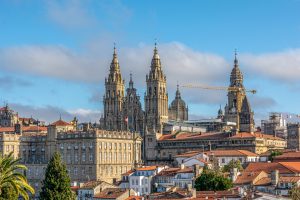
9. Santiago de Compostela Cathedral
This intricate church is considered the 3rd most important Christian site in the world after Jerusalem and Rome. Since the 9th century, pilgrims have been journeying here vis the Camino de Santiago so they can visit the shrine of Saint James.
The Roman Catholic edifice has had a tough go of it, having been stormed by enemy armies, burnt down, and rebuilt several times over. In its current incarnation, the church is sprawling and can easily take you a whole day to explore the porticoes, the crypt, and to see all of the amazing stone sculptures inside.
Fun fact: it’s home to the Botafumiero, the world’s largest censer, which swings overhead, issuing billowing clouds of incense during mass.
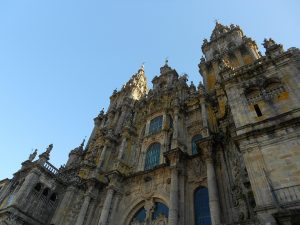
8. Camino de Santiago
To visit the shrine of Saint James and the Cathedral, pilgrims have been traveling along the Camino de Santiago for over a thousand years.
Still in use, modern-day devotees walk up to 500 miles before they reach their destination. You can recognize who’s on pilgrimage by the symbolic scallop shell they hang from their backpacks or clothing, shells which are commonly found on the shores of Galicia. These days, you don’t have to be religious to walk the Way of Saint James. Thousands of tourists trek the hike every year, and there are even tour companies that will arrange hotel stays and other details to make the going as easy as possible.
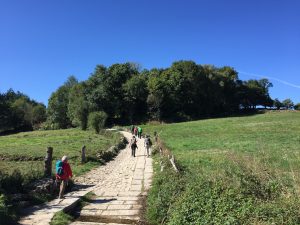
7. Ourense
The city of Ourense is distinguished by the four rivers cutting through it, and by being situated on top of active geothermal hot springs.
The hot springs are what attracted the Romans here centuries ago, and signs of their habitation of the area still exist today. Like Santiago de Compostela, Ourense has an impressive cathedral in Romanesque style.
It’s a side trip for pilgrims on the Camino de Santiago, which cuts through the city before continuing to Santiago de Compostela. Follow up a long soak in the hot spring pools by bar-hopping and filling up on the local tapas.
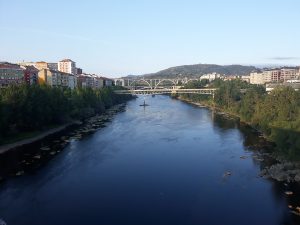
6. Vigo
To the West, on the Iberian coast, lies the port city of Vigo. Highlights here include the Quinones de Leon Art Museum, the Castro Fortress, and long sandy beaches.
Spend the morning climbing the steep cobblestone streets of Casco Vello, the old town. In the afternoon, go shopping in the Ensanche district and then stick around for the nightlife.
It’s especially nice in summer, when the weather is warm but not as hot as elsewhere in Europe thanks to the breeze off the Atlantic. From Vigo, it’s possible to hop over to the Cíes Islands or other coastal towns, like Baiona.
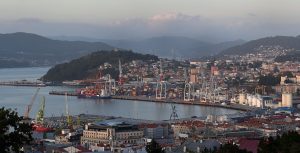
5. Cíes Islands
This uninhabited archipelago off the coast of Galicia has a pure, unadulterated beauty.
Any of the three islands that make up the Cíes is a good choice for visiting. Our suggestion: bring a picnic basket and spend the day basking on the beach and walking around.
Just be prepared to take your litter back with you, since there are no garbage bins. You can also camp overnight. Because it’s a Nature Reserve, you have to get a special permit to do so from the port in Vigo. The experience of being in a natural paradise makes this one of the best things to do while you’re in Galicia – and also the most beautiful.
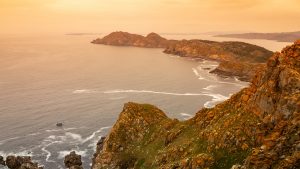
4. Galician food
Seafood is the main feature of Galician cuisine.
Grilled octopus on a bed of creamy polenta, scallops topped with zesty pesto—you could eat to your heart’s content here. There are more mussels here than you’ll ever see in your life, in a broth flavored by the region’s tart Albarino wine. Other must-try dishes include Queimada, a hot cheese concoction similar to fondue; Caldo Gallego, a cold soup with regional greens; and Tarta de Santiago, a cake.

3. Galician wine
The region’s signature wine, a dry white called Albarino, is ubiquitous to Galicia. Consider visiting a vineyard or two for a tasting, or simply kick back with a glass in Santiago de Compostela or next to the water in Vigo.

2. Roman ruins
In ancient times, the Roman Empire marched through Spain. Signs of their conquest remain even all these years later. Sites include the Muralla Romana de Lugo, a mile-long stone wall in the city of Lugo.
The fortress impresses upon anyone who sees it the might of this former empire. The Tower of Hercules, a Roman lookout post on the northernmost tip of Galicia, could have been built yesterday.
The Romans believed Finisterre, on the westernmost edge, to be the true ends of the Earth – and the view, of the Atlantic Ocean stretching to the horizon, makes it easy to see why.
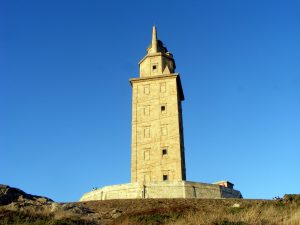
1. As Catedrais Beach (Cathedral Beach)
Although its official title is Praia de Augas Santas (Beach of the Holy Waters) this place has become known to tourists as Cathedral Beach for its awesome stone arches.
You’ve no doubt seen them before: the unique rock formations make this beach one of the most photographed beaches in the world. In fact, it’s so popular that you’ll need to book a reservation to see it on this official government website. Still, it’s worth the extra step to stroll through this otherworldly landscape of sandy shores, towering rock cliffs, and tide pools.
